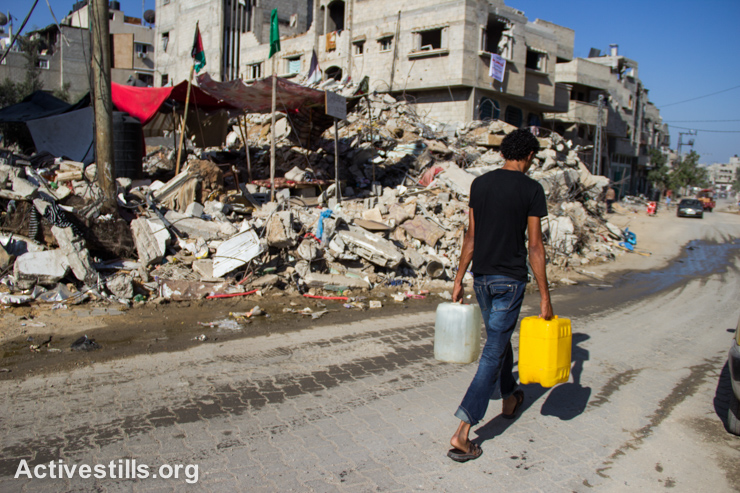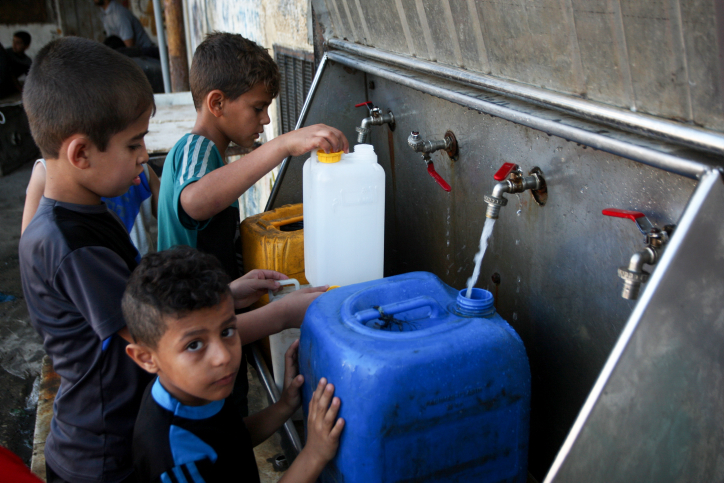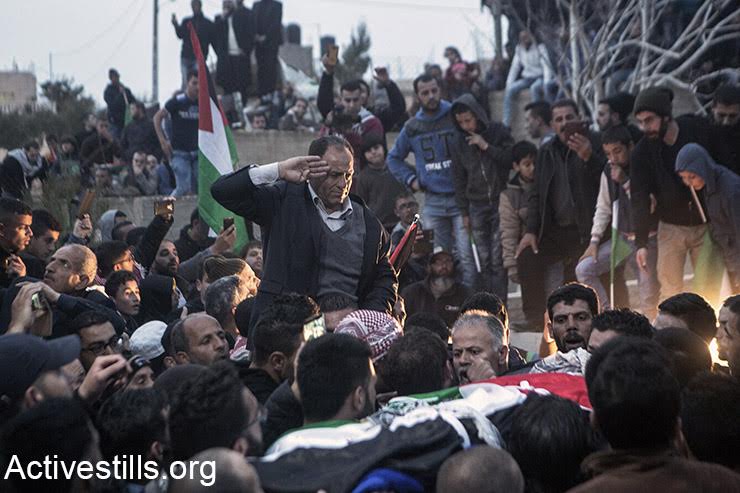The Israeli cabinet decided to accept Mahmoud Abbas’ request that the electricity supply to Gaza be cut. The army has warned against doing so, but it seems that for Israel, Abbas’ interests are more important than people’s lives.

Who says there is no coordination between the Israeli government and the Palestinian Authority? On Sunday evening, Israel gladly accepted Palestinian President Mahmoud Abbas request to cut the already-dilapidated electricity supply to Gaza, in order to make life for its residents that much more difficult. Think about the significance of cutting electricity by 40 percent in the middle of a blazing summer. The government and the IDF are both well aware of the current humanitarian crisis in the Strip. They are also well aware of the potential for an escalation should Israel continue to intensify the crisis. But the decision is to accede to Abbas’ request in his war against Hamas — all on the backs of the people who live there. Why? Because it serves Mahmoud Abbas’ political interests.
Palestinians in Gaza are afforded between four and eight hours of electricity on an average day, and this is without even taking into account problems that arise in Gaza’s power plant or in power lines from Egypt or Gaza. Most of the supply comes from Israel, a smaller portion from Egypt, and in the past around 25 percent from the local power plant. Israel supplies 120 megawatts in 10 high voltage lines — an amount that hasn’t changed for the past 10 years, despite the fact that Gaza’s population, and its needs, have grown dramatically in this time. Overall, the electricity that reaches Gaza on a daily basis covers just over half of what is needed. And this is when things are “normal.”
Since mid-April, Gaza’s sole power station has been out of commission, after a deal by Turkey and Qatar to supply the it with fuel came to an end. The situation has created an energy crisis in the Strip — and the consequences are dire. Hospitals, for example, have ceased providing necessary treatments and are relying exclusively on ramshackle generators. This means that water purification systems aren’t functioning, while untreated sewage finds its way to the sea in enormous quantities. Water filters cannot be used, and it is nearly impossible to rely on pumps to clear the sewage from the neighborhoods. All these create real life-threatening situations. The humanitarian disaster we keep hearing about has already taken its toll on Gaza. Even the Israeli army understands this.

Under these circumstances, it is even possible to imagine the repercussions of additional drastic cuts in the electricity supply to Gaza at the height of summer? Gisha emphasizes that Gaza’s energy ministry has no way to ration out resources to, say, hospitals at the expense of other places. In other words, the cuts will certainly have an impact on everything and everyone in the Strip. In an urgent letter sent to Defense Minister Avigdor Liberman on Sunday, Gisha said that “cutting electricity is a red line that must not be crossed. This option must be taken out of consideration, and Israel must strive to make sure the infrastructure in the Gaza Strip meets the needs of its residents.”
So what is actually going on here? Does Israel not understand the significance of the ongoing catastrophe in Gaza? Or perhaps it understands but does not care? Or maybe it understands it well, and has no qualms about it? On the one hand Education Minister Naftali Bennett said on Monday that “we must learn lessons from Gaza 2014. The humanitarian situation there is worsening. We must work to prevent another round of fighting,” just hours after he sat at a cabinet meeting, where it was decided to cut electricity to Gaza, thus rendering another round of fighting inevitable. On the other hand, Intelligence Affairs Minister said on Monday that “Israel has no policy for Gaza, only decisions.”
It is possible that Israel has no clear policy vis-a-vis Gaza, but it seems that when it comes to Abbas, there is certainly no lack of policy. As long as he is suppressing the political rivals of the man who is often called “the subcontractor of the occupation,” Israel is happy to help. And not only in Gaza: in the West Bank, Israel wipes out Abbas’ political opponents, such as Basel al-Araj. Meanwhile, the Palestinian Authority’s security forces look away when the army enters Area A of the West Bank (under full PA control) to carry out arrests. Only this morning did the IDF arrest Safi Kabha, Hamas’ former minister of prisoners’ affairs, after they demolished his home in Jenin. I am guessing that Abbas was not too upset that Kabha was arrested in territory that, according to the Oslo Accords, should be under his control.

There are two classic Israeli responses to every conversation on the disastrous situation in Gaza: “why do they blame Israel and not Egypt?” and “what do they want from us? The occupation in Gaza ended long ago!”
Yes, Egypt also shoulders responsibility (though to a far lesser extent) for the catastrophe in Gaza. But Israel was and remains the main culprit for a number of reasons. Firstly, it is responsible for the situation that birthed the catastrophe: through 50 years of control — whether through direct occupation or blockade — Israel created a situation in which Gaza became dependent on Israeli resources, did not develop the Strip’s infrastructure, and did not allow for local alternatives to flourish, whether through restricting equipment for building and maintaining an electricity grid (or even alternatives such as solar panels), or through bombing infrastructure and deterring international groups that would have otherwise been willing to invest huge amounts in order to rehabilitate that infrastructure, but are worried about being bombed again every two-three years.
Yes, Israel still controls Gaza. Israel holds two million people in a prison that it controls from afar. If the latest decision to cut electricity comes to fruition, Gaza may find itself dealing with a new catastrophe of new proportions. The thought that violent collective punishment of this can will lesson support for Hamas is a moral low. After all, Israeli citizens have elected, time and again, an extremist government that only grows more and more extreme. What would we say if the world decided to punish us by withholding water, food, and electricity from us and our children?
This post was originally published in Hebrew on Local Call.


